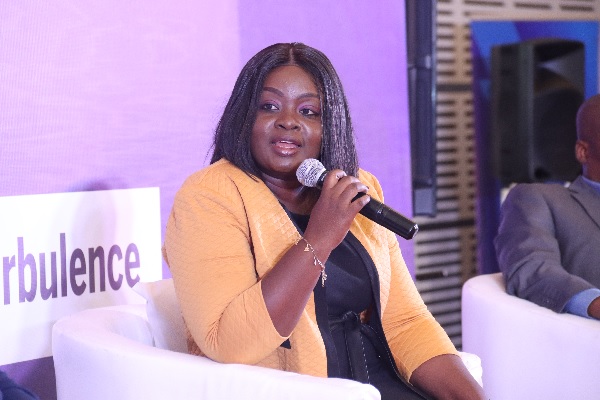
Capitalise on tourism to revive economy — Govt urged
AN Economist, Prof. Agyapomaa Gyeke-Dako, is calling on government to capitalise on the opportunities in the tourism sector to generate revenue, create jobs, stimulate economic growth and improve the livelihoods of citizens.
She explained that Ghana’s tourism sector has the potential to significantly contribute to the revival of the country’s economy.
“For tourism, we are blessed with a lot of resources such as river bodies, mountains among others, if you look at this skill spectrum that we have, the low to medium skilled people in the economy are very many and so it's important for us to think about how we can capitalise on the resources that we have to make sure tourism becomes a good avenue to fetch us the needed revenue that we want to be realising.”
“It's been found that if we concentrate on tourism, in the next 10 years or so, it will be a major sector that is going to be giving us so much revenue in the economy,” she said.
Prof. Gyeke-Dako said at the third quarter edition of the Graphic Business/Stanbic Bank Breakfast Meeting in Accra last Tuesday, that the country needed to relook at the taxes imposed on some sectors of the economy to enable businesses to increase productivity and help the country generate the needed revenue.
“It is important for the government to relook at its tax system and see how it can give incentives to sectors such as agro processing because those sectors appeal to the skills spectrum that we have in our economy,” she stated.
Potential
According to Ghana’s 2022 Tourism Report launched in April, the country received 914,892 international tourists in 2022, representing a 47 per cent increase from the previous year’s 623,523.
The corresponding revenue also saw an exponential increase of more than 107 per cent, with the West African country making well over $2.5 billion from international arrivals. On the domestic front, Ghana recorded 937,087 tourists, representing a 55 per cent growth in 2022.
Ghana’s arrivals recovery, which stood at 81 per cent, is significantly higher than the African average, and is around that of recovery levels for European markets.
The development is an indication that the country can do more to attract and deepen the sector’s growth to help increase revenue.
Diversifying our economy
She explained that Ghana has been focusing more on its primary products such as cocoa and gold, however, those products have fluctuations in the world market prices depending on what happens on the world markets which could either lead to a drop or an increase.
That, she said, was not helping the country to plan because it was faced with challenges whenever prices drop on the international market.
The meeting which attracted participants from all sectors of the economy, including academia and industry, was on the theme: “Thriving during Economic Turbulence.”
“So, it is important that we begin to think more about how we can diversify our economy by adding value to the primary goods we export. We export these primary products without adding value and so on the world markets, the prices are very low.”
“We have quite a number of countries producing similar products so what would actually give us more revenue would be when we add value to them,” she added.
Cost of doing business
Making his contribution, the President of Ghana Union Traders Association (GUTA), Dr Joseph Obeng, said the tax system in Ghana did not ensure compliance.
“Compliance is assured when there is affordability, our taxes paid here are too much as compared to the sub-region. Taxes should be simplified and structured in a manner that will ensure compliance,” he said.
He explained that businesses were struggling to navigate through the current economic turbulence due to the increase in the number of taxes imposed on them.
“Cost of doing business, import duties and inflation are so high that doing business here in Ghana is so difficult,” Dr Obeng added.
 Click the link to read your copy.
Click the link to read your copy.